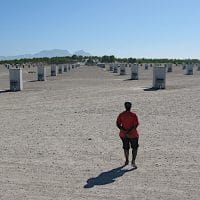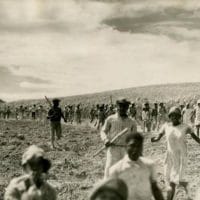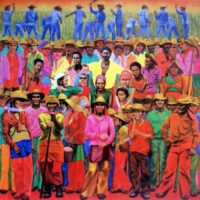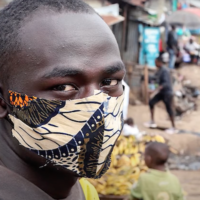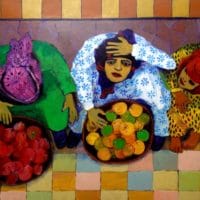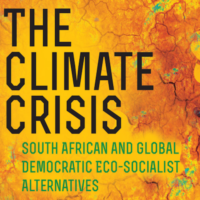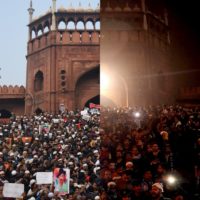-
Mauritian PM labels UK and U.S. ‘hypocrites’ over Chagos Islands dispute
The Prime Minister of Mauritius, Pravind Jugnauth, has labeled the United Kingdom and the United States “hypocrites” and “champions of double talk” over their former colonial master’s refusal to hand over the Chagos Islands.
-
Medical workers of conviction: Speaking to Cuban doctors who heal the world
The United States government has continued attacking Cuban medical internationalism right up to the current pandemic, making wild allegations against the program that disparage the medical workers.
-
Celebrating the Life of Samir Amin
For Samir Amin’s anniversary on Sept 4, Global University for Sustainability invited Samir’s friends to reminisce their interactions with Samir and celebrate the very rich life that Samir lived.
-
Essays in memory of Immanuel Wallerstein (1930-2019)
‘Once they are taken to be ideas about a historical world-system, whose development itself involves “underdevelopment,” indeed is based on it, [Marx’s theses] are not only valid, but they are revolutionary as well.’
-
Oil spill threatens disaster for Mauritius
The Japanese-owned (Mitsui-operated) MV Wakashio was en route to Brazil from China to fetch iron ore from a port owned by the notorious mining company Vale. Here the ship is seen having run aground near Blue Bay, one of the area’s most pristine sites for coral, already threatened by bleaching due to the climate crisis. Now the marine life and fisherfolk must survive this spill.
-
From the Archive | Part two: Marxism and African liberation
In this second of a two-part series, Guyanese historian and activist Walter Rodney argues that the theory of scientific socialism can and should be used in the African context.
-
Dossier 31: ‘The Politic of Blood’: Political Repression in South Africa
In his famous speech from the dock in April 1964, Nelson Mandela spoke of ‘revolutionary democracy’ rooted in precolonial forms of collective deliberation and decision making.
-
Time is not on our side in Libya
Haftar, who was once an intimate of the United States’ Central Intelligence Agency (CIA), is now prosecuting a seemingly endless and brutal war against the United Nation’s recognized Government of National Accord (GNA) based in Tripoli and led by President Fayez al-Sarraj.
-
World makers of the Black Atlantic
My sense, while reading this book, was of a twentieth century tradition now ripe to be reclaimed and revived, since, like Du Bois and his generation, we will surely need now to grasp the deep roots of our multiple crises if we are to be free of them and deliver a world to our children that is fit to inherit.
-
Billions of children are being punished by the pandemic
There are immense casualties from this Great Lockdown. Incomes have collapsed for half the world’s population, while hunger rates are on the rise. But there are other casualties, other victims, often less remarked upon.
-
The economic crash is already ravaging Africa
Sub-Saharan Africa is facing its greatest crisis in generations. The continent thus far has been less affected by the pandemic than other parts of the world. But the impact of the global economic crisis is already enormous.
-
Another life-saving brigade travels to South Africa
More than 1,450 men and women in white lab coats from Cuba’s Henry Reeve Contingent have traveled to 22 nations in Europe, Latin America and the Caribbean, Africa and the Middle East to battle the pandemic.
-
Without a country in which to live, a field to plant, a love to cherish or a voice to sing, one is dead
Local communities have demonstrated remarkable generosity, but cannot cope anymore. National capacities are overwhelmed. The approaching lean season, coupled with the armed conflict and the COVID-19, will generate further dramatic situations and displacements of populations. The clock is ticking; we have little time left.
-
“Capitalism is incapable of responding to a crisis of this kind”
The lockdown in South Africa has been extended till the end of April. However, the government’s execution of the lockdown, along with decades of under-investment in health, has left the country unprepared.
-
Witnessing the hell that a migrant can face
The Saudi-UAE war on Yemen has been going on for five years. Despite recent peace talks leading to an improvement in aid distribution, the violence has escalated in certain key districts of Yemen over the past two weeks. Since January, 35,000 Yemenis have been displaced from their homes, an indicator of the dangerous situation in the country.
-
Marxism and the Climate Crisis: African Eco-Socialist Alternatives
There is a rich inheritance of emancipatory Marxism in Africa, which includes Frantz Fanon, Ruth First, Samir Amin, Sam Moyo, Harold Wolpe and many others. Today, Satgar argues, the challenge is to defeat carbon capitalism accelerating the climate crisis and fomenting exclusionary nationalisms and for this there has to be a return to Marx.
-
Catastrophe is upon us–the grim view from Southern Africa
The word catastrophe is being used more and more by institutions reporting on the effects of extreme weather in the two regions of Africa, Southern and South Eastern Africa, and of late Australia. The word means a number of things: tragic; fiasco; utter failure; sudden and violent change in a feature of the Earth. All are completely fitting for the situation we now face.
-
Libya is being torn apart by outsiders
Ghassan Salamé is the head of the United Nations Support Mission in Libya. He took over this job in 2017, six years after the catastrophic NATO war on Libya. What Salamé inherited was a country torn into shreds, two governments in place—one in Tripoli and one in Tobruk—and one civil war that had too many factions to name.
-
President Thomas Sankara: A 70th birthday tribute
Thomas Sankara’s passion was Africa’s advancement; his experimental field was Burkina Faso. What President Sankara wanted to see in Africa, he strategized, mobilized and implemented in Burkina Faso. He would then present his successes to African leaders, while encouraging them to surpass his achievements.
-
Dossier 24: The world oscillates between crises and protests
This dossier is dedicated to offering an assessment of the moment we find ourselves in today. Part 1 provides a quick overview of planetary affairs; and Part 2 there are more detailed reports from our offices on their respective regions: South Africa, India, as well as the Caribbean and Latin America.







